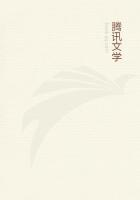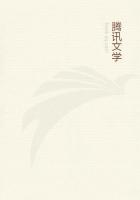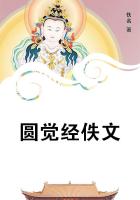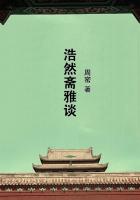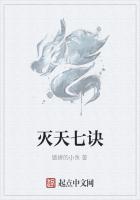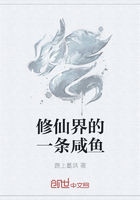"General-Adjutant gone, the King, in sky-blue casaquin [often in very faded condition] steps into his writing-room; walks about, reading his Letters more completely; drinking, first, several glasses of water; then coffee, perhaps three cups with or without milk [likes coffee, and very strong]. After coffee he takes his flute; steps about practising, fantasying: he has been heard to say, speaking of music and its effects on the soul, That during this fantasying he would get to considering all manner of things, with no thought of what he was playing; and that sometimes even the luckiest ideas about business-matters have occurred to him while dandling with the flute. Sauntering so, he is gradually breakfasting withal: will eat, intermittently, small chocolate cakes; and after his coffee, cherries, figs, grapes, fruits in their season [very fond of fruit, and has elaborate hot-houses].
So passes the early morning.
"Between nine and ten, most of one's plan-work being got through, the questions of the day are settled, or laid hold of for settling.
Between nine and ten, King takes to reading the 'Excerpts'
(I suppose, of the more intricate or lengthier things) of Yesterday, which his three Cabinet Raths [Clerk Eichel and the other Two] have prepared for him. King summons these Three, one after the other, according to their Department; hands them the Letters just read, the Excerpts now decided on, and signifies, in a minimum of words, what the answers are to be,--Clerk, always in full dress, listening with both his ears, and pencil in hand.
May have, of Answers, CABINET-ORDERS so called, perhaps a dozen, to be ready with before evening. ["In a certain Copy or Final-Register Book [Herr Preuss's Windfall, of which INFRA] entitled KABINETSORDENKOPIALBUCH, of One of the three Clerks, years 1746-1752, there are, on the average, ten CABINET-ORDERS daily, Sundays included" (Preuss, i. 352 n.).]
"Eichel and Company dismissed, King flings off his casaquin, takes his regimental coat; has his hair touched off with pomade, with powder; and is buttoned and ready in about five minutes;--ready for Parade, which is at the stroke of eleven, instead of later, as it used to be in Papa's time. If eleven is not yet come, he will get on horseback; go sweeping about, oftenest with errands still, at all events in the free solitude of air, till Parade-time do come.
The Parole [Sentry's-WORD of the Day] he has already given his Adjutant-General. Parole, which only the Adjutant and Commandant had known till now, is formally given out; and the troops go through their exercises, manoeuvres, under a strictness of criticism which never abates." "Parade he by no chance ever misses," says our Demon friend.
"At the stroke of twelve," continues Preuss, "dinner is served.
Dinner threefold; that is, a second table and a third. Only two courses, dishes only eight, even at the King's Table, (eight also at the Marshal's or second Table); guests from seven to ten.
Dinner plentiful and savory (for the King had his favorites among edibles), by no means caring to be splendid,--yearly expense of threefold Dinner (done accurately by contract) was 1,800 pounds."Linsenbarth we saw at the Third Table, and how he fared.
"The dinner-service was of beautiful porcelain; not silver, still less gold, except on the grandest occasions. Every guest eats at discretion,--of course!--and drinks at discretion, Moselle or Pontac [kind of claret]; Champagne and Hungary are handed round on the King's signal. King himself drinks Bergerac, or other clarets, with water. Dinner lasts till two;--if the conversation be seductive, it has been known to stretch to four. The King's great passion is for talk of the right kind; he himself talks a great deal, tippling wine-and-water to the end, and keeps on a level with the rising tide.
"With a bow from Majesty, dinner ends; guests gently, with a little saunter of talk to some of them, all vanish; and the King is in his own Apartment again. Generally flute-playing for about half an hour; till Eichel and the others come with their day's work:
tray-loads of Cabinet-Orders, I can fancy; which are to be 'executed,' that is, to be glanced through, and signed.
Signature for most part is all; but there are Marginalia and Postscripts, too, in great number, often of a spicy biting character; which, in our time, are in request among the curious."Herr Preuss, who has right to speak, declares that the spice of mockery has been exaggerated; and that serious sense is always the aim both of Document and of Signer. Preuss had a windfall;12,000 of these Pieces, or more, in a lump, in the way of gift;which fell on him like manna,--and led, it is said, to those Friedrich studies, extensive faithful quarryings in that vast wilderness of sliding shingle and chaotic boulders.
"Coffee follows this despatch of Eichel and Consorts; the day now one's own." Scandalous rumors, prose and verse, connect themselves with this particular epoch of the day; which appear to be wholly LIES. Of which presently. "In this after-dinner period fall the literary labors," says Preuss:--a facile pen, this King's; only two hours of an afternoon allowed it, instead of all day and the top of the morning. "About six, or earlier even, came the Reader [La Mettrie or another], came artists, came learned talk. At seven is Concert, which lasts for an hour; half-past eight is Supper."[Preuss, i. 344-347 (and, with intermittencies, pp. 356, 361, 363&c. to 376), abridged.]


